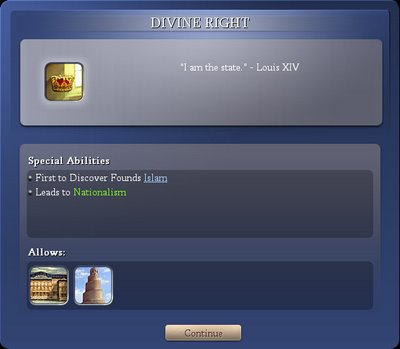 everyone is buzzing about scooter libby's latest testimony in the CIA leak case: apparently cheney told libby that the president had personally authorized him (libby) to leak classified information to the press in an effort to discredit joe wilson. if this is true, if libby didn't perjur himself with this testimony, that makes the president the leaker-in-chief.
everyone is buzzing about scooter libby's latest testimony in the CIA leak case: apparently cheney told libby that the president had personally authorized him (libby) to leak classified information to the press in an effort to discredit joe wilson. if this is true, if libby didn't perjur himself with this testimony, that makes the president the leaker-in-chief.a couple years ago, when richard novak first outed plame to the public, bush got all huffy and insisted that he wanted to know as badly as anybody who the leakers were in his administration. he insisted he would get to the bottom of it. now it turns out that he already knew who the leaker was, because he was the leaker himself.
how do you explain the discrepancy? tpm points to an interesting quote in the washington post:
A senior administration official, speaking on background because White House policy prohibits comment on an active investigation, said Bush sees a distinction between leaks and what he is alleged to have done. The official said Bush authorized the release of the classified information to assure the public of his rationale for war as it was coming under increasing scrutiny.
in other words, it's not leaking when the president does it. part of this is that the administration is arguing that the president's decision to disclose the information constitutes a de facto declassification. and of course the president can declassify information, though he's supposed to follow certain procedures that seem to have not been followed here.
as josh says in the conclusion of his tpm post:
Setting all that aside, what is most revealing is the attitude suggested by the White House official rather than just the net outcome. Beyond the legal particulars, the president's attitude seems to be that the law just doesn't apply to him -- and that's not surprising since we see so many other instances of that perspective in practice.
Peal back all the individual arguments from Al Gonzales and the president and whomever else they put forward, the underlying idea is not so much that the president is above the law as that he is the law. He embodies it, you might say, even embodies the state itself. And thus what he does can't be illegal. What he does is simply the state cogitating and defending itself.
This is a vision that simply incompatible with any idea of separation of powers because in this view the president's prerogative always trumps the other two branches. And that makes it a grave danger to our constitutional system itself.
i've been wanting to go into civilization iv and pull this screenshot for months. i particularly like the fact that this technology leads to nationalism. the good news is that now we can build versailles over in occupied baghdad, which will substantially reduce the maintenance cost of nearby cities. the bad news is that we were not the first to discover so we didn't get to found islam.
anyway, to get back on track, let's go back to one last quote from the washington post article:
Also, the official said, the president has not been accused of authorizing the release of the name of Valerie Plame, the undercover CIA operative whose unmasking in a July 2003 newspaper column prompted the federal investigation.
"There is a clear difference between the two," the official said. "I understand that in politics these two can be conflated. And we're going to have to try to deal with that. But there is an active investigation and that limits our ability to do so."
Still, Bush's action stands in stark contrast to his condemnations of the kind of disclosure that the court filing said he authorized. "Let me just say something about leaks in Washington," Bush told reporters in September 2003. "There are too many leaks of classified information in Washington. There's leaks at the executive branch, there's leaks in the legislative branch, there's just too many leaks. I want -- and if there's a leak out of the administration, I want to know who it is. And if a person has violated law, the person will be taken care of."
That statement was one of many Bush has made over the past three years condemning leaks of sensitive information. His strong words may make the distinction between leaks of classified data and what he is alleged to have done difficult for the White House to explain.¶


No comments:
Post a Comment